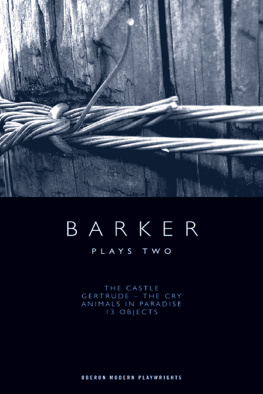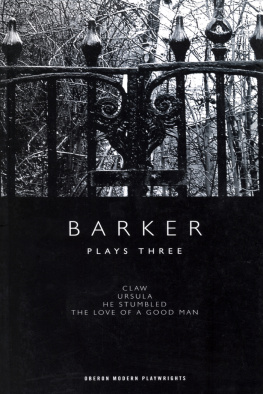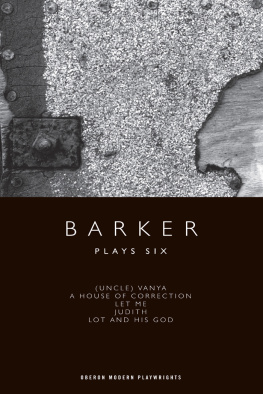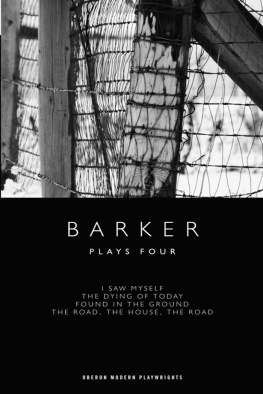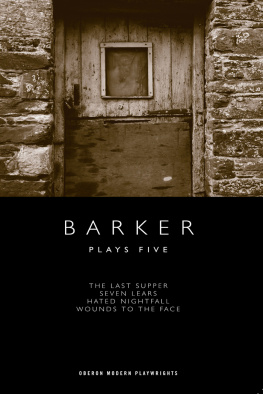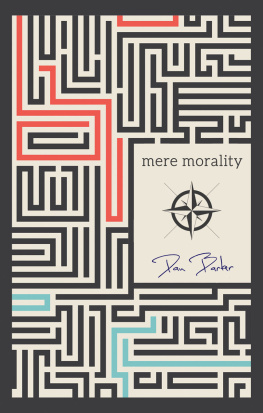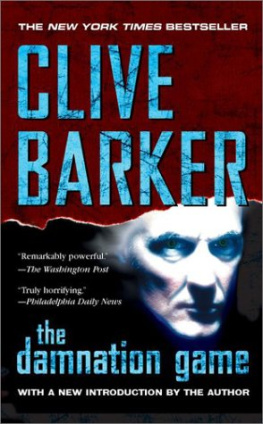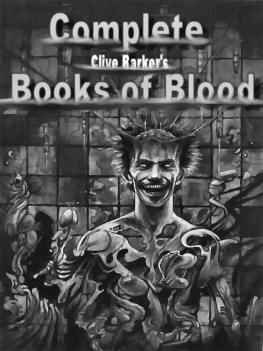
WHISKY TANGO FOXTROT
Kim Barker grew up in Montana, Wyoming, and Oregon, and graduated from Northwestern University with a degree in journalism. She worked at The Spokesman-Review in Spokane, Washington, for four years, and The Seattle Times for two years, winning awards for her investigative reporting. In 2001, at age 30, she joined the Chicago Tribune , and began making reporting trips to Afghanistan and Pakistan the next year. Barker was the Tribune s South Asia bureau chief from 2004 to 2009. She was then awarded the Council on Foreign Relations Edward R. Murrow press fellowship to study Afghanistan and Pakistan. She now lives in New York City, where she works as a reporter at ProPublica.
Scribe Publications Pty Ltd
1820 Edward St, Brunswick, Victoria, Australia 3056
2 John St, Clerkenwell, London, WC1N 2ES, United Kingdom
Published by Scribe 2016
First published by Scribe in 2011 as The Taliban Shuffle
This edition published by arrangement with Doubleday, a division of Random House, Inc., New York
Copyright Kim Barker 2011
The names and identifying characteristics of some of the people mentioned in this book have been changed to protect the privacy and preserve the confidences of those individuals and their families.
All rights reserved. Without limiting the rights under copyright reserved above, no part of this publication may be reproduced, stored in or introduced into a retrieval system, or transmitted, in any form or by any means (electronic, mechanical, photocopying, recording or otherwise) without the prior written permission of the publishers of this book.
9781925307702 (e-book.)
CiP entries for this title are available from the National Library of Australia and the British Library
scribepublications.com.au
scribepublications.co.uk
To the people of Afghanistan and Pakistan,
who are still waiting for the punch line
CONTENTS
PART I KABUL HIGH
PART II WHACK-A-STAN
PART I
KABUL
HIGH
CHAPTER 1
WELCOME TO THE TERRORDOME
I had always wanted to meet a warlord. So we parked our van on the side of the beige road and walked up to the beige house, past dozens of skinny young soldiers brandishing Kalashnikov assault rifles and wearing mismatched khaki outfits and rope belts hiked high on their waists. Several flaunted kohl eyeliner and tucked yellow flowers behind their ears. Others decorated their rifle butts with stickers of flowers and Indian movie starlets. Male ethnic Pashtuns loved flowers and black eyeliner and anything fluorescent or sparkly, maybe to make up for the beige terrain that stretched forever in Afghanistan, maybe to look pretty.
Outside the front door, my translator Farouq and I took off our shoes before walking inside and sitting cross-legged on the red cushions that lined the walls. The decorations spanned that narrow range between unicorn-loving prepubescent girl and utilitarian disco. Bright, glittery plastic flowers poked out of holes in the white walls. The curtains were riots of color.
We waited. I was slightly nervous about our reception. Once, warlord Pacha Khan Zadran had been a U.S. ally, one of the many Afghan warlords the Americans used to help drive out the Taliban regime for sheltering Osama bin Laden and his minions after the attacks of September 11, 2001. But like a spoiled child, Pacha Khan had rebelled against his benefactors, apparently because no one was paying enough attention to him. First he turned against the fledgling Afghan government, then against his American allies. In an epic battle over a mountain pass, the Americans had just killed the warlords son. The Pashtun code required revenge, among other things, and now, six days after the battle, here I was, a fairly convenient American, waiting like a present on a pillow in Pacha Khans house, hoping to find a story edgy enough to make it into my newspapernot easy considering it was March 2003, and there were other things going on in the world. But Farouq told me not to worry. He had a plan.
Pacha Khan soon marched into the room. He certainly looked the warlord part, wearing a tan salwar kameez, the regions ubiquitous traditional long shirt and baggy pants that resembled pajamas, along with a brown vest, a bandolier of bullets, and a gray-and-black turban. The wrinkles on his face appeared to have been carved out with an ice pick. He resembled a chubby Saddam Hussein. We hopped up to greet him. He motioned us to sit down, welcomed us, and then offered us lunch, an orange oil slick of potatoes and meat that was mostly gristle. I had no choice, given how strictly Afghans and especially Pashtuns viewed hospitality. I dug in, using my hands and a piece of bread as utensils.
But just because Pacha Khan fed us, didnt mean he would agree to an interview. The Pashtun code required him to show us hospitality. It didnt force him to talk to me. Pacha Khan squinted at my getupa long brown Afghan dress over black pants, an Indian paisley headscarf, and cat-eye glasses. I kept shifting my positionwith a bad left knee, a bad right ankle, and a bad back, sitting on the floor was about as comfortable as therapy.
Farouq tried to sell my case in the Pashto language. The warlord had certain questions.
Where is she from? Pacha Khan asked, suspiciously.
Turkey, Farouq responded.
Is she Muslim?
Yes.
Have her pray for me.
I smiled dumbly, oblivious to the conversation and Farouqs lies.
She cant, Farouq said, slightly revising his story. She is a Turkish American. She only knows the prayers in English, not Arabic.
Hmmm, Pacha Khan grunted, glaring at me. She is a very bad Muslim.
She is a very bad Muslim, Farouq agreed.
I continued to grin wildly, attempting to charm Pacha Khan.
Is she scared of me? he asked.
Whats going on? Whats he saying? I interrupted.
He wants to know if youre scared of him, Farouq said.
Oh no, I said. He seems like a perfectly nice guy. Totally harmless. Very kind.
Farouq nodded and turned to Pacha Khan.
Of course she is scared of you, Farouq translated. You are a big and terrifying man. But I told her you were a friend of the Chicago Tribune , and I guaranteed her safety.
That satisfied him. Unaware of Farouqs finesse, I proceeded with my questions about Pacha Khans deteriorating relationship with the Americans. Then I asked if I could have my photograph taken with the warlord, who agreed.
Make sure you get the flowers, I told Farouq.
In one picture, Pacha Khan peered sideways at me, with an expression suggesting he thought I was the strange one. I snapped Farouqs picture with Pacha Khan as well. Souvenirs in hand, we left. But we still had two more hours of bumpy, unforgiving road south to the town of Khost, an experience similar to being flogged with baseball bats. Farouq taught me the numbers in the Dari language and told me about the real conversation he had with Pacha Khan.
I dont think its ethical to say Im Turkish, I said.
I dont think its safe to say youre American. The Americans just killed his son. Trust me. I know Afghans. I know what Im doing.
I shut my mouth, but I still didnt see what the big deal was. I had glasses. I was obviously harmless. And Pacha Khan seemed more bluster than bullet.
As we wandered around Pacha Khan-istan, calling me nave was almost a compliment; ignorant was more accurate. This was only my second trip to Afghanistan as a fill-in correspondent for the Tribune , and I was only supposed to babysit a war that nobody cared about while everyone else invaded Iraq. With my assumed swagger and misplaced confidence, I was convinced that I could do anything. Meeting a warlord whose son had just been killed by the Americans was nothing but a funny photo opportunity. I felt I was somehow missing out by not being in Iraq, the hitter sidelined for the championship game. Like everyone else, I figured Afghanistan was more of a sideshow than the big show.
Next page


